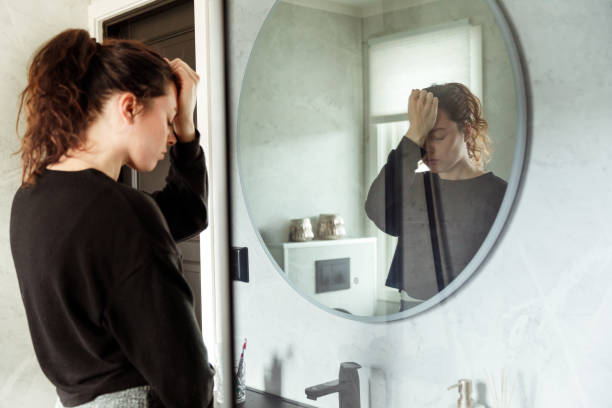ADHD doesn’t just affect work, school, or personal routines—it also shapes how partners connect, communicate, and share life together. When one or both partners have ADHD, a relationship can be vibrant, passionate, and full of creativity, but it can also face unique challenges like forgetfulness, emotional intensity, and communication breakdowns. The good news? With understanding, intentional strategies, and teamwork, couples can not only manage ADHD’s impact—they can thrive.

How ADHD Affects Romantic Relationships
ADHD impacts executive functioning, which can influence how partners handle responsibilities, regulate emotions, and stay present in conversations. Without awareness and strategies, these differences can lead to frustration, misunderstandings, or conflict. It is important for every individual who has ADHD to manage it outside of the relationship through therapy and/or medication. With a foundation of self-care in place, that person can take steps to show up as a strong partner.
Common Relationship Challenges with ADHD:
- Forgetfulness: Missing dates, forgetting tasks, or overlooking important details.
- Communication breakdowns: Interrupting, zoning out, or difficulty following long conversations.
- Emotional intensity: Reacting strongly to situations or feeling easily overwhelmed, as emotional regulation can be a challenge in ADHD.
- Uneven responsibilities: One partner feeling like they carry more of the household or planning load.
- Impulsivity: Making quick decisions without fully considering the consequences.
- Difficulty with follow-through: Starting projects but struggling to finish them.
2 Ways to Strengthen Your Relationship with ADHD in the Mix
1 – Practice the Self-Compassion Pause
Being able to trace how your thoughts can turn into negative spirals can greatly assist you in your understanding of BDD and why it impacts you the way it does. In our Woodland Hills Body Dysmorphic Disorder therapy sessions, we see how beneficial it can be to take a moment to really consider what is happening and what response you can have to the situation.

1 – Create a Shared System for Organization
- While having ADHD can put you at a disadvantage when it comes to organizing your responsibilities and keeping track of what is important to you, it is not impossible. Those who see us for ADHD therapy in Woodland Hills are able to find and utilize tools and tricks to help with work-life balance and keep on top of what matters to them.
- Make sure you’re both looking in the same place. Use shared calendars, reminders, or to-do list apps to keep both partners in the loop. Many people who have ADHD worry not only that doing tasks will fall to their partner, but having to remember that the task exists will also be on their shoulders. When you are both able to access the same tools as thoughts arise, you are able to share the mental load with one another. If you think of something that needs to be done, open the list or app and add it right away. Your partner can do the same. Then, you both have access in real time to what needs to be done, what is coming up, or what you need to talk about and make a plan for.
- Be clear about who is doing what. Assign responsibilities clearly so there’s no confusion about who’s doing what. This provides clear parameters and structure for both people. It also manages expectations; so much conflict can be avoided by not expecting something to happen on its own. When you know that every task needs to be assigned, then there is no assumption and no hope the other person will guess what you want or need. This also allows the both of you to participate in systems and goals, rather than one person bearing the brunt of the mental and physical load. When tasks are divided, it is then up to each person to have their own approach to getting something done on time. Each person might utilize different reminders or take different approaches. What matters is that it gets done (correctly); the “how” shouldn’t really impact the other person at all.
- Maintain the system on a regular basis. Build in check-ins (e.g., a weekly “relationship meeting”) to review plans and tasks. This is a great time to get ahead of upcoming responsibilities, and also to touch base about how the current division of tasks is going. Over time, it may make more sense for you and your partner to trade off taking on certain jobs. As long as you both identify that and clearly reassign it, you can always adapt as your lives evolve. In our Woodland Hills ADHD therapy sessions, we sometimes hear a fear that this kind of structure will “kill the romance”. So much of romance is branded as surprises and departures from responsibility. Actually, it is more romantic to put consistent work in to your relationship, to look for ways to make each other’s lives easier, and to be able to speak openly about what your needs are. But if you’re worried that a weekly meeting might get stale, there is no reason why you can’t make a plate of all your favorite snacks for this meeting and light a couple of candles, if you want to make it a little more fun or cozy. This check-in is your opportunity to share with one another and to look at what is coming up together. Who says it can’t be a pleasant event?
2 – Improve Communication with ADHD-Friendly Strategies
It is important for all couples to put time and effort into their communication skills and strategies. Something I hear as an ADHD counselor in Woodland Hills is that ADHD partners worry a lot that their communication skills are lacking, or that their communication needs place too much strain on relationships. Any pair of people can struggle to connect; in the case of ADHD, you have to identify your weaknesses and create tools that address them.

- Choose your topic(s) and set aside a window of time. Keep conversations focused and avoid overwhelming each other with too much information at once. If you find that conversations naturally veer onto other topics, try “parking” those other topics for a future date. You can keep a note open in your phone or a notepad nearby and jot down whatever else comes up so that you know it won’t be forgotten, but also so that it doesn’t derail the conversation you’re trying to have. Make sure you are able to reserve time with one another where distractions are limited – this means turning off alerts on mobile devices, turning off music or television, ensuring that neither of you have somewhere to be shortly. A private, focused conversation is more comfortable, which makes it easier to speak to one another with kindness and respect.
- Build in a pause agreement. Nobody is perfect, and there is no guarantee against the stress that a tough conversation can bring. Even with the best laid plans in place, you may find that one or both of you loses their cool at times. Agree on signals for “time-outs” when emotions run high, so both partners can cool down before continuing. Because high emotions can accompany ADHD, you may think that it will be the ADHD partner who needs to pause more often, and that may be true. But it is also good to remember that anyone can feel overwhelmed during tricky times; both of you should feel safe and comfortable using and honoring a pause agreement. Determine how long the pauses can be for; ensure that you aren’t using then to avoid saying something difficult yet important to be honest about.
- Use active listening. Ensure that you are able to focus on the other person by eliminating sensory distractions. This not only includes what you can see and hear, but also consider how you feel in your body – are you physically comfortable, not too hot or cold, not hungry or thirsty? Repeat back what you heard to confirm understanding, using statements such as, “What I’m hearing is…” or, “Am I correct in my understanding that…?” These types of statements allow you to summarize and also to get clarity before you both determine that you are in agreement.
Key Takeaways

- ADHD can bring both challenges and strengths to a relationship. The key is understanding how it can show up and working with the strengths and finding solutions for the weaknesses.
- Clear systems, ADHD-friendly communication, and intentional connection can help both partners feel understood and supported.
- Teamwork and empathy are essential for creating balance and reducing resentment.
- An individual who has ADHD may utilize tools like therapy and/or medication for ADHD management. Maintaining a baseline of self-care is an important component of being able to show up as a partner.
- You may choose to discuss your relationship during in-person or online ADHD therapy. Having a safe space to share and explore is beneficial for you as an individual and as a partner.
- Regularly showing appreciation for your partner can go a long way to reinforcing positive habits. If each of you have taken on what you feel is fair and manageable and you are both doing your best, each of you should be able to express gratitude here and there for things the other person does that make your life better.
- Having an organized system leaves mental and physical energy for non-task aspects of the relationship, like spending quality time together, maintaining intimacy, and just having a good time.
ADHD Treatment at Embracing You Therapy
When left unmanaged, ADHD symptoms can be deeply disruptive in adulthood—impacting everything from work performance to personal relationships. It can influence how you focus, communicate, and connect with others. At our Woodland Hills office, ADHD treatment is tailored to help you understand the unique ways your brain functions and develop practical strategies that can be smoothly integrated into your daily life.
Contact us today for your complimentary 20-minute phone consultation with our Admin Team today!



